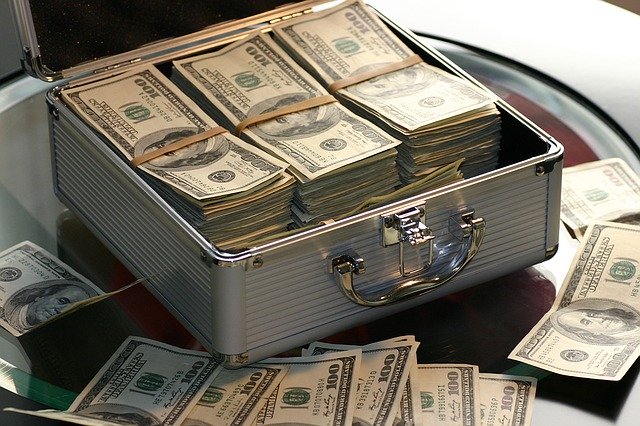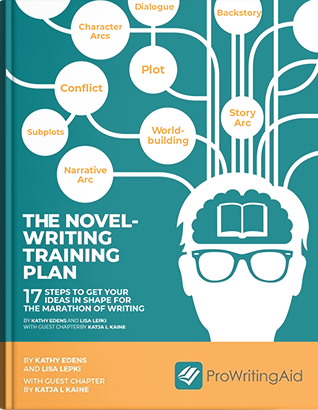
It’s a trap we all fall into.
We’ve heard others say the words. We’ve said it ourselves. Let’s be honest: we think it all the time.
“It must be nice.”
We see someone successful in a way that we wish we were successful. We think that they’ve got The Life. They are doing things that we would love to do and have and enjoy, but we don’t have it.
That person is lucky, right?
Where Success Envy Comes From
The first time this attitude ever really dawned on me was when the Milwaukee Brewers signed first baseman Prince Fielder to a new contract.
I had to dig into a website that lists athlete contracts to find it, but here we go: in 2009, Prince Fielder signed a two-year contract with the Milwaukee Brewers for $18 million.
The snide comments came flooding in: “Oh, man, millions of dollars to play a game!” “It must be nice to get that kind of money just for playing baseball.”
And so on.
Initially, I agreed with them. Then, I thought about the life of a professional baseball player.
There are 162 games in a normal Major League Baseball season from April to October. So, in those seven months, as a baseball player, you’re going to be gone 162 days – most of those evenings, so you don’t get dinner with your family.
More than half of that time, you’re traveling to different stadiums across the country. You live out of a suitcase.
And that’s just for the games. You also have practices, physical therapy and training, endorsement deals, team meetings, and so on.
Partners and kids aren’t allowed at any of those.
You can’t go to a restaurant with your family, or to the supermarket. People recognize you and won’t leave you alone. You’re always on display when you’re out in public.
And yeah, you’re playing baseball. But how fun is it when you have to do it every day?
I had a wood shop on the side for a few years because I love woodworking. I tried to take it full-time a couple years ago. I was miserable! Woodworking is fine when you want to do it. But you start to hate it when you’re down in the wood shop from 7pm until 4am on a Wednesday night because you’re behind on orders.
Now, what does this have to do with writing?
How to Recognise “Writer’s Envy”
We all want to be successful. That’s why we work so hard at becoming better writers, marketing our books or our blogs, and creating content.
So we hear about big success stories – the household names – and we think that we should be there. We wish we could have their lives. We see sales numbers or pictures of their houses and we can’t help but repeat those four stupid words.
“It must be nice.”
But is it? Is it everything we dream it would be?
Or is that success part of a trade-off that you might not be willing to make?
Stephen King: Working for $1.60/hour
According to Men’s Health, Stephen King has a net worth of around $500 million.
Half a billion dollars just to write books?!? Amazing!
King comes up with creepy stories, builds worlds around them, writes about them every day, and gets paid so, so handsomely to do it. That’s the life any writer would want, right?
Well, Stephen King also approaches his work like a job: he writes six pages a day. Every day. For years and years, he has followed this routine.
He doesn’t struggle with “writer’s block”. He sits down and writes without excuse.
Can you do that? Can you sit down, even when you’re not in the mood to write, and knock out six pages? Even if you’re sick? Or your dog just died? Or you’re on vacation? Or you’ve just had a long day?
Let’s say you can, and that still sounds like a dream.
But Stephen King didn’t just start there. He made sacrifices along the way.
According to his fantastic book, On Writing, King struggled for years before finally hitting it big with a publisher.
He wanted to be a success. But before he was the massively successful published author, he worked at New Franklin Laundry, washing hospital sheets and linens, along with restaurant linens, for $1.60 an hour.
He wrote after work, or sometimes squeezed in his words during his lunch hour.
“[I]f I happened to be tired, or if there were extra bills to pay and no money to pay them with, it seemed awful. I’d think This isn’t the way our lives are supposed to be going.”
Wouldn’t you be tempted to give it up and move on right there? He was even married at the time! If you’re 22 years old and you’re complaining about not being a success yet, imagine the patience you’d have to have to get to Stephen King’s level of sacrifice!
He moved on from that job to a teaching job where he only made $6,400 a year. That’s less than $38,000 a year in today’s money.
By comparison, the median household income in the United States is $56,000 a year.
So let’s paint the total picture: You’re married. You are a teacher making far less than the average household. Your spouse works at Dunkin Donuts. You drive a Buick with transmission problems you can’t afford to fix. To save money, you don’t even have a phone.
Is that “nice”?

Making Sacrifices for Success
Stephen King couldn’t have his future success without going through this period in his life.
While cleaning the school one day, he got the inspiration for Carrie, which would be his first blockbuster story.
Had he given up and gotten a desk job somewhere, that inspiration would never have happened.
Would you have given up? I would have, especially if I had a wife relying on me to provide.
That idea for Carrie? He wrote three pages of it and threw it away. His wife pulled it out of the garbage and encouraged him to keep going. King wound up selling the book for a $2,500 advance and kept on teaching while he wrote it.
The publisher wound up paying him $200,000 for the book, and he was off to the races.
He was 26 years old. Could you make those sacrifices for that long, still writing and pitching every single day for years on end?
Two Things We Forget About Success
Any time we put someone else – or their success – on a pedestal, we have a tendency to memory hole the rest. In other words, we strap blinders to the sides of our heads and only focus on the good stuff.
Successful people – including writers – deal with long-haul sacrifices that often go on for years or even decades. And throughout all of it, they don’t know that they’re going to be successful at the end of it!
And then there’s the other stuff.
Like famous athletes who can’t spend any time with their families. Or movie stars who can’t just stop somewhere for a bite to eat.
How many celebrities have awful, short-lived marriages? How many sordid memoirs have been written about famous people who neglected their families to great emotional effect?
Nothing happens in a vacuum. If you want to be successful like them, you’ll have to deal with some of these other struggles that you probably haven’t had to deal with yet.
As Arrested Development creator and writer Mitch Hurwitz once said, “Stop comparing your first drafts with everyone else’s finished final product.”
How to Be Happy with Your Lot
The last thing I want to do is villainize success.
I’m not saying success is bad. I’m not saying that you have to have a miserable life if you’re going to be successful professionally.
I personally admire anyone who is able to be successful, and I do aim to be successful myself.
But that “It must be nice” attitude needs to stop.
Those people work hard and make big-time sacrifices. They’re not “lucky.” They’re putting on their hard hats and doing whatever it takes.
If you want to join them, then you have to raise the expectations for yourself – and be prepared for the new struggles that come with success.
Meanwhile, you are where you are in life because this is where you’re supposed to be.
Why? I have no idea.
It could be because you have more to learn yet. Or maybe because you have to sacrifice more to get over the hump that you haven’t yet. Or it’s possible that you probably wouldn’t handle massive success well anyway.
So there’s only two things you have to do at this point.
Two Ways to Achieve Success as a Writer
First, put in the work.
If you are tired of where you are professionally, start making sacrifices.
Turn off the TV. Get up an hour earlier. Quit taking breaks at lunch.
Whatever it is, you need to do it. It’s time to do your best, and that means making hard decisions.
Second, appreciate where you are.
Other people are successful, but that doesn’t mean they are on Easy Street. It just means they traded one comfort for another.
Maybe you’ve got a fantastic spouse by your side and can spend quality time with them every night. Some successful people would give up their riches for that.
Be content. Find a way to appreciate where you are now.
And don’t let others’ success bring you down or frustrate you. Success is not a zero-sum game.
Aim high, but do it with gratitude.
And be realistic about your expectations. Envy won’t get you anywhere – and it’s based on an incomplete picture of that person.
Now, go write with reckless abandon. You can’t be successful without doing that.


